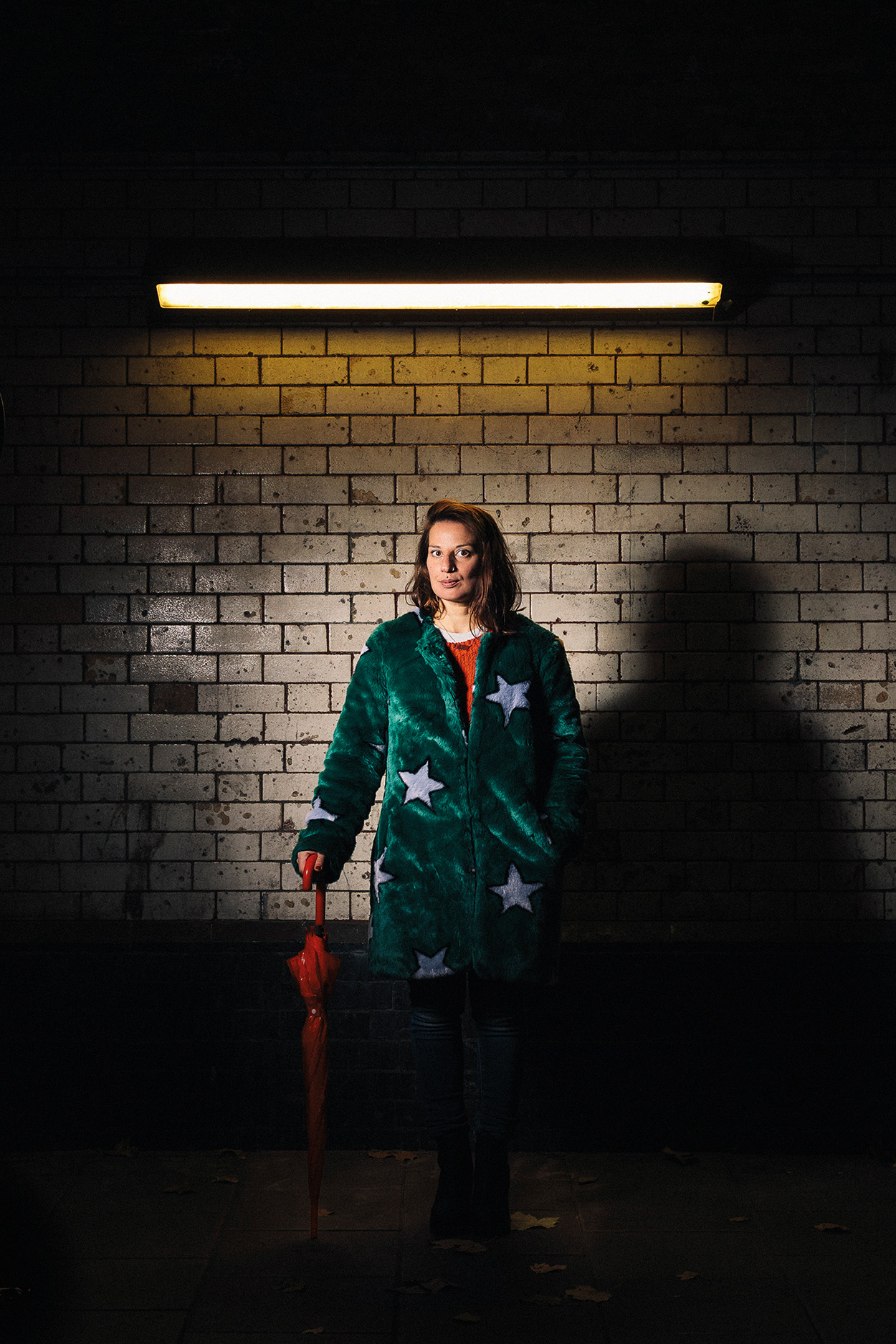With the number of people working nights in the UK increasing to almost 3.2 million, in our midwinter issue, we met up with five women who all venture out in the dark, while the rest of us are deep in slumber... This is an extract from sex worker, Melina's story...

Portrait of Melina by Heather Shuker
“Before sex work, I had 40 low-wage jobs. I have post-traumatic stress disorder, and panic when people shout at me. Minimum-wage jobs have little sympathy to this. My final motivation to become a sex worker came when I was working in a pub on minimum wage. I was living in a warehouse with friends and they wanted to go and see an exhibition in Brussels one weekend. I asked for time off to go, but my boss said no, so I quit. Hospitality jobs have always been easy to find. But I wanted something else.
“I never dreamed of being ‘something’ – a doctor or a teacher. I just need to get paid. I clicked on a pop-up on a porn site advertising webcam opportunities. I was in my room when I first switched on my camera and was so nervous – all these people I couldn’t see looking at me. But people instantly tipped me and asked me to do things, like touch myself. You’re not supposed to get naked until you’re in a private chat, but you can flash. I didn’t earn loads, but I covered my rent. It was performative, I love performing.
“I nourish my sexuality and have passionate moments with lovers, but I also see sex as a basic thing. We compartmentalise aspects of our lives – the way we act with colleagues is different to friends. Some feminists believe you can’t consent to sex when desire is missing. And I get it. But we often have sex without desire – when couples are trying for babies it becomes functional. That’s still valid. We eat for pleasure; we also eat when hungry.
“When I needed more money, I chose to do escorting. I find my jobs on an adult website. I met my first client in a hotel and it was a defining moment. I was so overwhelmed that I burst into tears just before – it crossed my mind not to do it, especially thinking about my family. The guy was in his sixties and knew it was my first time, I was scared and excited. I had sweat patches. He was kind and gave me an envelope of cash, telling me to take it even if I didn’t go through with it. But I’d come this far; I was committed. He was a good lover. I walked away happy.
“But it’s not always like that. And that’s fine – no one, even people who love their jobs, have only good experiences. What needs to end is potentially violent people targeting sex workers. Violence is not part of our job. But it does happen and people blaming sex workers for it is victim blaming. The responsibility is with violent men, patriarchy, laws that don’t protect us. If sex work exists, our rights to work and be safe should exist. It’s that simple.
“People consume the products of the sex industry, but the taboos around it make it difficult for discussions to happen and for people to be supportive and more active in their responsibility towards what they’re consuming. It’s hypocrisy and extremely hurtful for the adult industry.
“If sex work was led by men, instead of women, the laws would be very different. The laws against sex work are racist, transphobic, sexist, queerphobic. In Britain, sex for money is only legal when it’s one on one, but brothels run by sex workers would make me feel safer. Conversations about power and control are difficult, as when I have less money, I’ve less room to choose my jobs and I will take more risks.
“I have boundaries, I don’t want other women shamed and won’t let married men complain about their wives. Although, I do feel safer with married men, they don’t have expectations beyond our arrangement. We’re called homewreckers but the truth is, people cheat. Sex workers don’t make that happen more. Sexism is not our fault, and it wouldn’t be tackled by abolishing sex work. The result of that would be more poverty and, therefore, more sexism.”
Pick up a copy of issue 40 to read interviews with a midwife, DJ, doorwoman and taxi driver.
